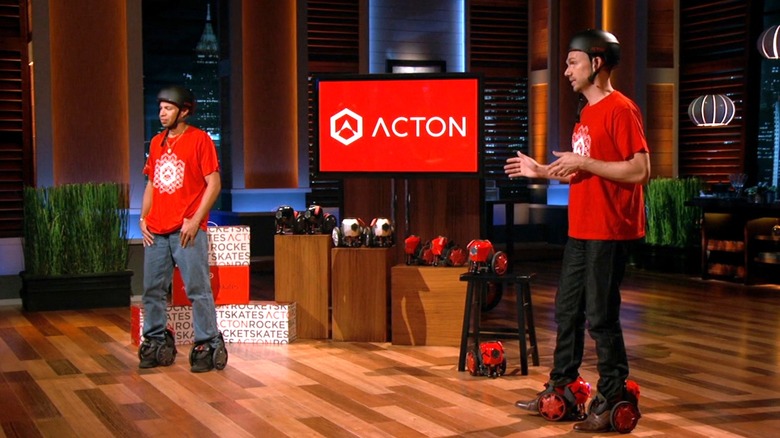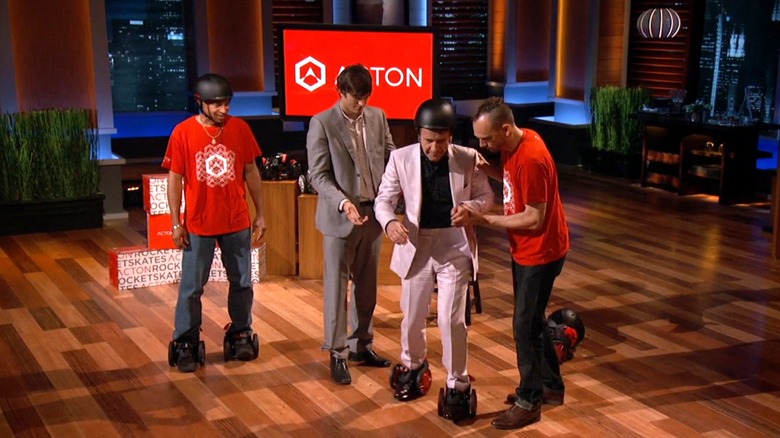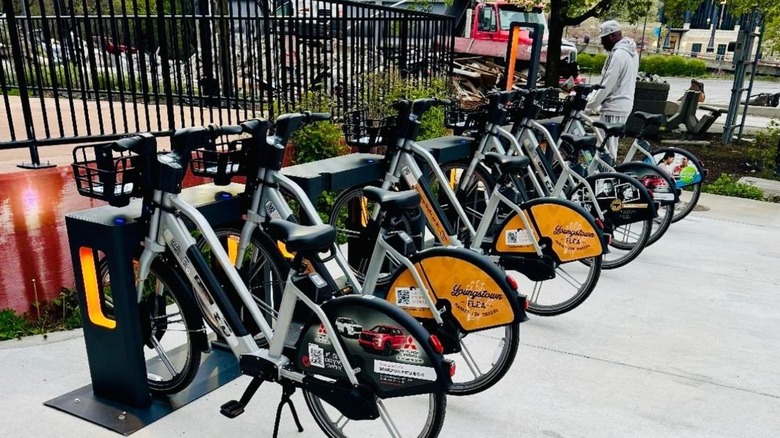Whatever Happened To Acton Skates After Shark Tank?
We may receive a commission on purchases made from links.
All these years later, "Shark Tank" is still one of television's most popular series. The show exploded onto the scene in 2009 and became an instant hit thanks to its riveting premise — a panel of wealthy investors collectively stare gaping holes into the entrepreneurial victims hoping to score a wad of cash from their wallets.
As great as the show is, the follow-up stories from "Shark Tank" can be more entertaining, heartwarming, and interesting than the episodes themselves. Sometimes, they get what they want, but usually not without having a few teeth pulled. It's anyone's guess whether the winning formulas eventually flounder.
But as the minds behind Season 11's ZUUM hover shoes and Season 7's Linka bike locks could tell you, the rejections can be equally plentiful. It's not always that the idea is bad — sometimes, the numbers just don't make sense, and there can be other petty grievances sprinkled in. But you can't always count out the hopeful inventors and business owners who are forced to take the walk of shame back to the green room. Acton's Rocket Skates — the brainchild of owner and founder Peter Treadway — was one such disappointment back in "Shark Tank" Season 7. If you're wondering how that venture turned out, keep reading.
What happened to Acton's Rocket Skates on Shark Tank?
Acton's Rocket Skates can only be described as the three-way amalgamated son of the hoverboard, electric scooter, and a pair of Heelys. The battery in the most expensive pair allowed it to roam up to 10 miles at speeds up to 12MPH. The concept was interesting, and it was a financial success with $1 million in sales in its first year.
But despite Peter Treadway's pitch, one of the Sharks, Robert Herjavec, found the skates hard to control. Granted, he didn't have long to break them in, and this is the sort of product you need to spend extra time with to see if it's not just user error getting in the way, but first impressions are everything on "Shark Tank."
As for other shark, celebrity guest Ashton Kutcher thought the asking price — upwards of $500 — was too steep for the target demographic. The rest were uninspired by the demo. The exception was Kevin O'Leary, who actually attempted to give him the $1 million investment he was after. But O'Leary doubled down on his hard-nosed, no-nonsense negotiation style after Peter tried meeting him in the middle of a 15% equity valuation.
Sure of himself and his grand idea, Peter didn't budge from his single-digit proposal and ended up packing his things for a long trip home. However, he ended up showing those Sharks who's boss – his company eventually raised nearly $6 million.
Acton after Shark Tank
If you're wondering where Peter and his company, Acton, are today, you might be happy to learn that it's alive, well, and thriving even better than he imagined. There's just one hamper on this otherwise heroic tale — the original product seemingly never caught on.
While there's evidence that it eventually rolled into Best Buy stores, the listing has long been inactive, and if you head to Acton's site now, you'll see the company exclusively peddling e-bikes and electric scooters to cities and B2B customers. These product categories have proven to be safer bets in the world of electric vehicular singularity.
A big part of its commercial success is owed to cities across the globe that have tapped Acton to equip their residents with short-term micro-mobility rentals, surely a significant chunk of the $6 million in revenue it reportedly generated back in 2021. Heck, it even has enough money to buy other companies now as it purchased Duckt, a European startup involved with docking and charging infrastructure for e-bikes and e-scooters. Take that, Kevin!
"Shark Tank" is available for purchase on Prime Video.


